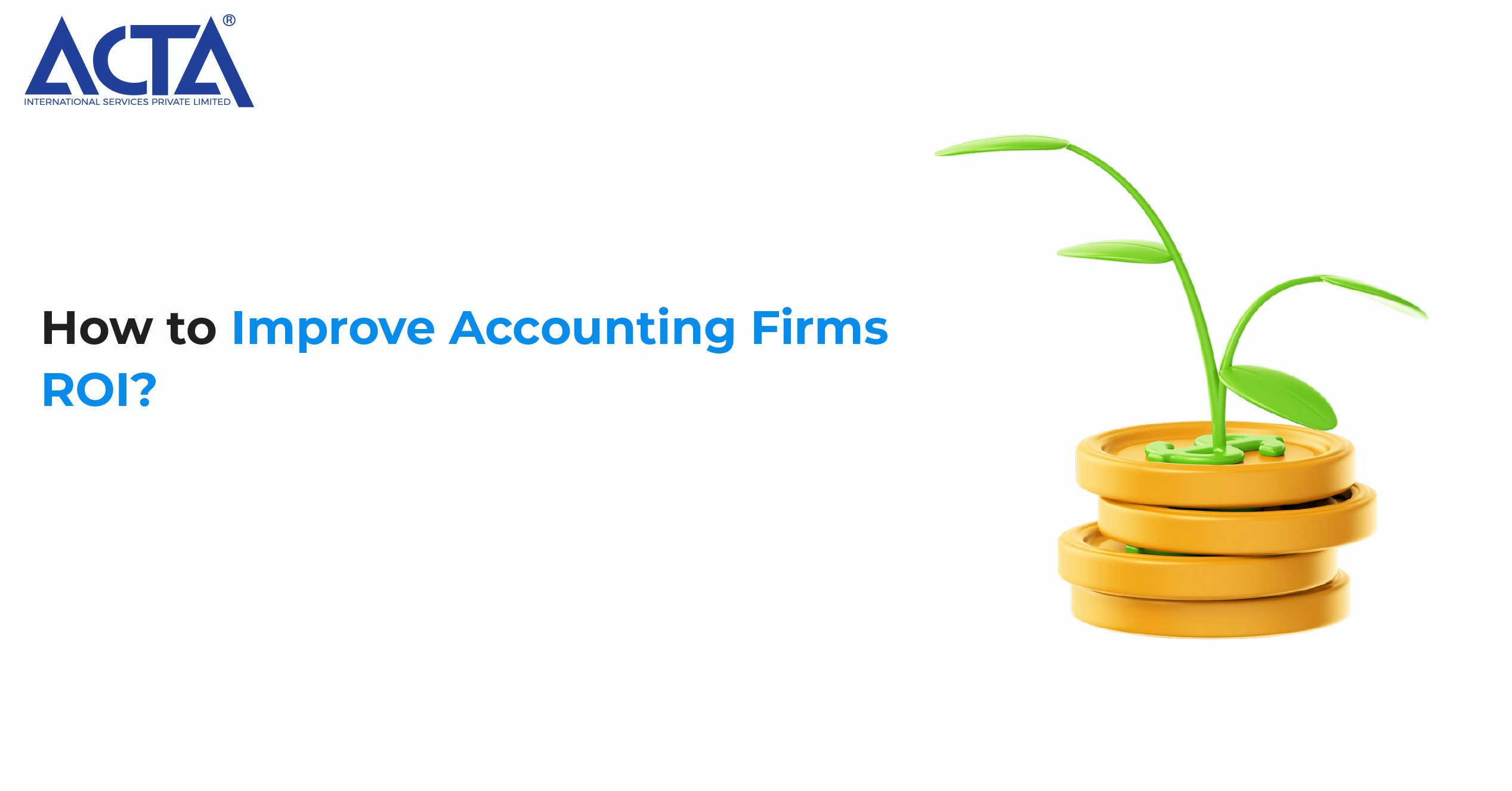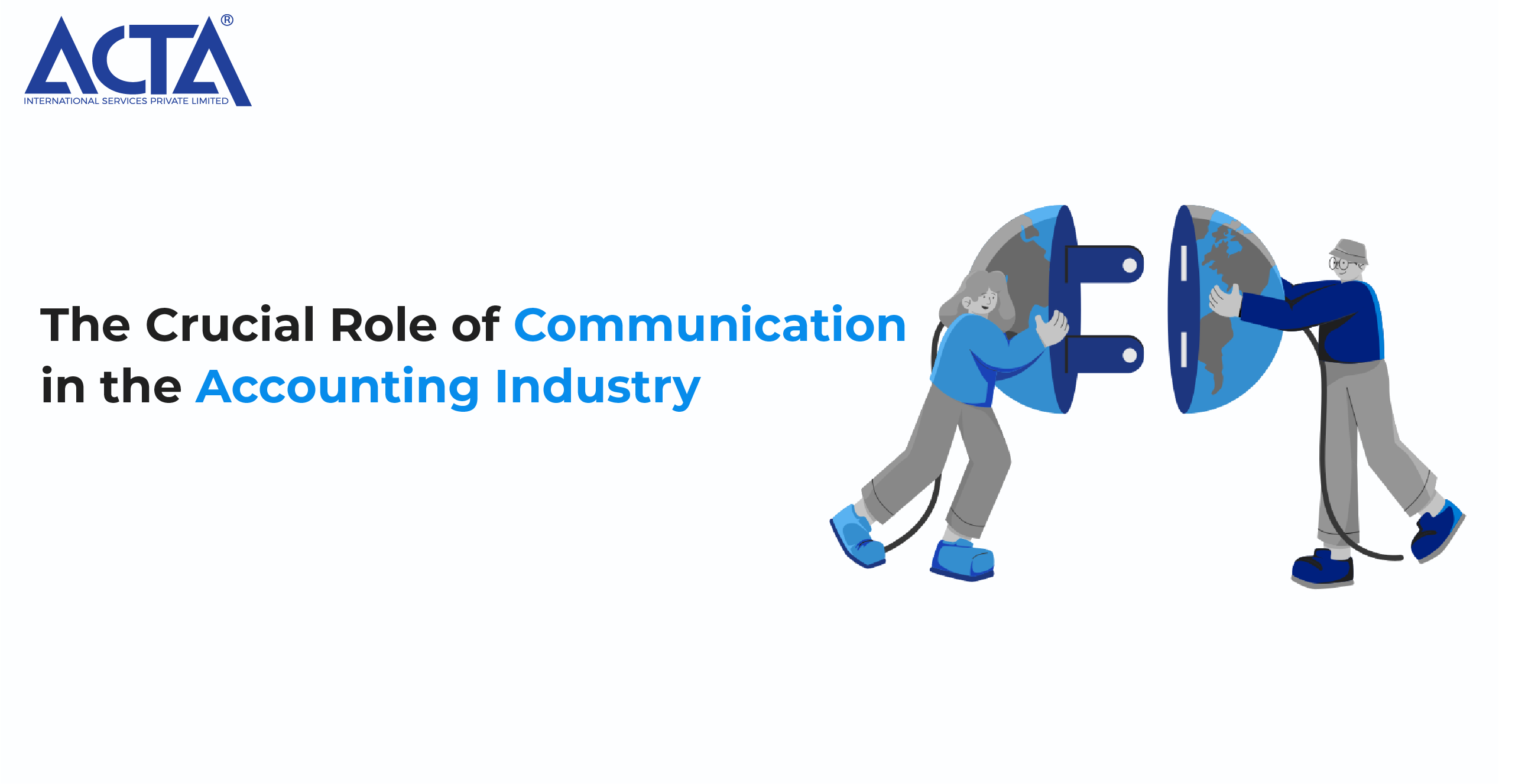
How to Improve Accounting Firms ROI?
Feb 12, 2024
By KARTHICK SUBRAMANIAM
Introduction:
In the rapidly evolving financial landscape, accounting firms face increasing pressure to deliver value while maintaining profitability. Return on Investment (ROI) is a critical measure of an accounting firm's efficiency and success. Improving ROI is not just about increasing profits; it's about optimizing resources, enhancing client satisfaction, and securing a competitive edge in the market.
Understanding the Imperative of Improving ROI in Accounting Firms:
The financial landscape's constant evolution places increasing pressure on accounting firms to deliver exceptional value while maintaining profitability. A crucial measure of an accounting firm's efficiency and success lies in its Return on Investment (ROI). High ROI signifies a firm’s adeptness at utilizing resources to maximize profits, reflecting its ability to offer value, optimize resource use, enhance client satisfaction, and secure a competitive edge.
Key Reasons to Improve ROI:
- Increased Competitive Advantage: Firms with better ROI can offer more value at competitive prices and adapt swiftly to market changes.
- Enhanced Financial Health: Directly impacting the bottom line, a better ROI leads to increased profitability and facilitates growth.
- Efficient Resource Utilization: Focus on ROI drives operational efficiency, reducing waste and improving productivity.
- Client Satisfaction and Retention: High ROI allows firms to invest more in client relationships, enhancing service quality.
- Attracting and Retaining Talent: Profitable firms can offer better employee benefits, attracting and retaining top talent.
- Adaptability and Future Readiness: Good ROI positions firms to invest in new technologies and trends, ensuring long-term sustainability.
Strategies for Enhancing ROI in Accounting Firms:
- Leveraging Technology for Efficiency:
- Automated Accounting Systems: Reduce manual errors and increase efficiency through automation.
- Cloud-Based Solutions: Utilize cloud computing for cost savings and collaborative work.
- Data Analytics and Reporting: Use data analytics for actionable financial insights.
- Optimizing Internal Processes:
- Streamlining Workflow: Implement process optimization techniques like Lean Six Sigma.
- Effective Project Management: Use project management tools for better client delivery and resource allocation.
- Regular Training and Development: Continually develop staff skills.
- Strategic Staffing Solutions:
- Outsourcing Non-Core Functions: Outsource tasks like offshore staffing to reduce costs and focus on core competencies.
- Hiring and Retention Strategies: Develop strategies to attract and retain skilled professionals.
- Performance Management: Set clear KPIs and conduct regular performance reviews.
- Client Relationship Management:
- Personalized Services: Understand and meet specific client needs.
- Technology in Client Engagement: Implement CRM systems for better communication.
- Value-Added Services: Offer additional services to enhance client satisfaction.
- Focusing on Sustainability and Compliance:
- Emphasize sustainable practices and compliance to avoid financial penalties and protect reputation.
Conclusion:
Improving ROI is imperative for accounting firms aiming to thrive in today's competitive and fast-paced business environment. It goes beyond mere financial gains, embedding efficiency, client satisfaction, and innovation at the core of the firm's operations. As the industry continues to evolve, firms that prioritize and effectively manage their ROI will find themselves well-positioned to seize new opportunities and face challenges head-on.
FAQs














